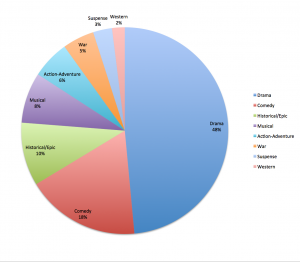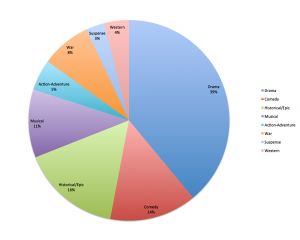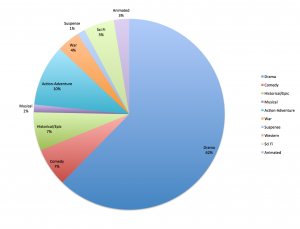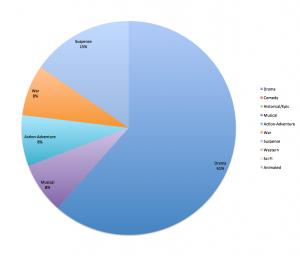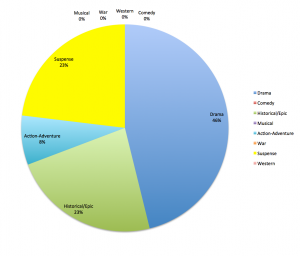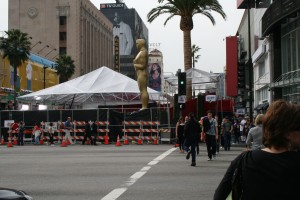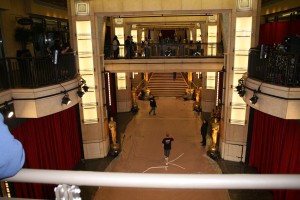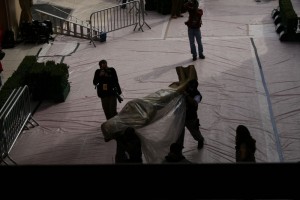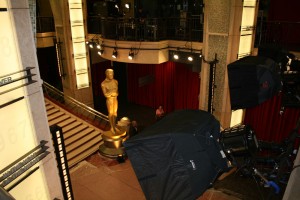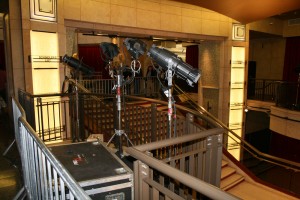Oscar Winners by Genre
/Is it true that dramas are more likely to win best picture than other genres? I decided to run the numbers. It turns out, the trend is very true and growing stronger. Best Picture Nominees for 1927 - 2001
(data source: http://www.filmsite.org/bestpics2.html)
Dramas: 48% (click chart to enlarge)
Best Picture Winners for 1927 - 2001
(data source: http://www.filmsite.org/bestpics2.html)
Dramas: 39% (click chart to enlarge)
As you can see, dramas are heavily favored. But interestingly, the trend grows even stronger in the past dozen years.
Best Picture Nominees (2002 - 2014)
Dramas: 62% (click chart to enlarge)
Best Picture Winners (2002 - 2014)
Dramas: 61% (click chart to enlarge)
They might as well call it the Academy Award for Best Drama. Granted, in 2009, the Academy began nominating as many as 10 movies for best picture. This allowed Sci Fi movies like District 9 and Animated movies like Up to gain nominations.
Academy Awards for Best Adapted and Best Original Screenplay are similarly weighted toward dramas. Two-thirds of best picture winners also win either of the two best screenplay awards, so there is a strong correlation.
Best Adapted Screenplays (2002 - 2014)
Dramas: 46% (click chart to enlarge)
Best Original Screenplays (2002 - 2014)
Dramas: 54% (click chart to enlarge)
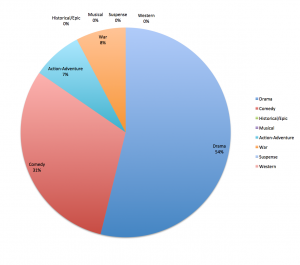 The upshot here is that if you're looking to win a writing Oscar, it's best to write a drama!
The upshot here is that if you're looking to win a writing Oscar, it's best to write a drama!
